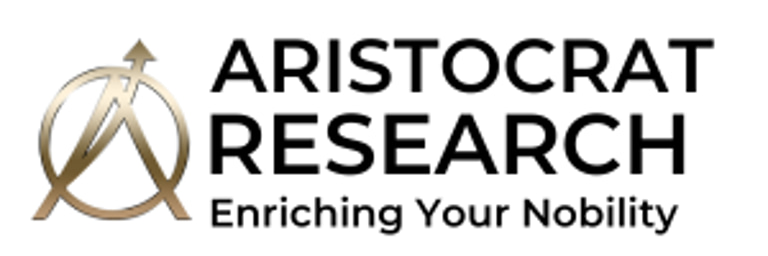How to Choose the Right Keywords for Your Research Paper
Choosing the right keywords for your research paper is crucial for increasing its visibility and accessibility. Keywords help search engines and databases index your paper, making it easier for other researchers to find and cite your work. This comprehensive guide will provide you with essential tips and strategies for selecting the most effective keywords for your research paper.
Understanding the Importance of Keywords
What are Keywords?
Definition: Keywords are specific terms or phrases that encapsulate the main topics and themes of your research paper.
Role in Research: They help in indexing your paper in databases and search engines, facilitating easier discovery by readers and researchers.


Why are Keywords Important?
Visibility: Proper keywords increase the likelihood of your paper being found by others in your field.
Searchability: They improve the searchability of your paper in academic databases like Google Scholar, PubMed, and Scopus.
Impact: Effective keywords can enhance the impact of your research by increasing citations.
Steps to Choose the Right Keywords
Step 1: Understand Your Research Focus
Identify Core Topics: Pinpoint the main themes and topics of your research.
Think Like a Researcher: Consider what terms other researchers might use to search for papers on your topic.
Step 2: Brainstorm Potential Keywords
Step 3: Use Keyword Research Tools
Initial List: Create an initial list of keywords and phrases related to your research.
Synonyms and Variations: Include synonyms and variations of key terms to cover a broader range of search queries.
Google Scholar: Analyze similar papers to see which keywords they use.
Database Suggestions: Utilize keyword suggestion tools available in academic databases.
Keyword Planners: Tools like Google Keyword Planner can provide insights into the popularity and relevance of your keywords.


Step 4: Evaluate and Refine Your Keywords
Relevance: Ensure your keywords are highly relevant to your research topic.
Specificity: Choose specific terms rather than broad ones to target a more focused audience.
Combination: Use a combination of broad and specific keywords to balance reach and relevance.
Step 5: Test Your Keywords
Search Your Keywords: Perform searches using your chosen keywords to see what kind of results come up.
Adjust as Needed: Refine your list based on the search results and relevance to your research. To know more...
Best Practices for Keyword Selection


Main Topics: Choose keywords that represent the main topics of your research
Subtopics: Include terms related to important subtopics and secondary themes.
Focus on Key Concepts
Use Specific Terms
Avoid Broad Keywords: Broad keywords can lead to your paper getting lost among many unrelated results.
Precision: Specific terms help target the right audience and improve search results.
Include Acronyms and Abbreviations
Common Acronyms: Include well-known acronyms related to your field.
Spelling Variations: Consider including different spellings or abbreviations to capture a wider audience.
Balance Between Broad and Specific Keywords
Broad Keywords: Use a few broad keywords to ensure your paper reaches a wide audience.
Specific Keywords: Focus more on specific terms that accurately describe your research.


Consider Your Audience
Target Readers: Think about who will be reading your paper and what terms they might use to search for related research.
Field-Specific Terms: Use terminology that is commonly used within your specific research field. To know more...
Practical Tips for Effective Keyword Usage
Incorporate Keywords into Your Paper
Title: Include one or two primary keywords in the title of your paper.
Abstract: Use relevant keywords throughout the abstract to highlight the main themes of your research.
Introduction: Integrate keywords in the introduction to set the context of your study.
Conclusion: Reiterate key terms in the conclusion to emphasize the main findings.
Avoid Keyword Stuffing
Natural Flow: Ensure that the use of keywords flows naturally within the text.
Quality Over Quantity: Focus on a few well-chosen keywords rather than overloading your paper with too many terms.
Monitor and Update Keywords
Stay Current: Regularly review and update your keywords to ensure they remain relevant as your research evolves.
Feedback: Seek feedback from peers and mentors on the effectiveness of your chosen keywords.
Common Mistakes to Avoid
Using Irrelevant Keywords
Relevance is Key: Avoid using keywords that do not accurately represent the content of your research.
Overly Broad Keywords
Be Specific: Broad keywords can lead to your paper being lost in a sea of unrelated content.
Ignoring Synonyms and Variations
Cover All Bases: Include synonyms and variations to capture different search queries. To know more...
Final Thoughts
Choosing the right keywords is an essential step in ensuring your research paper is discoverable and impactful. By following these tips and best practices, you can select effective keywords that increase the visibility and reach of your research.
Call to Action
Need help choosing the right keywords for your research paper? Our professional services can assist you in selecting keywords that maximize the visibility and impact of your work
Enquire now at [wa.me/+919894595035?text=authorspark](https://wa.me/+919894595035?text=authorspark) to get expert support. Visit [www.AristocratResearch.com](https://www.AristocratResearch.com) for more information.
